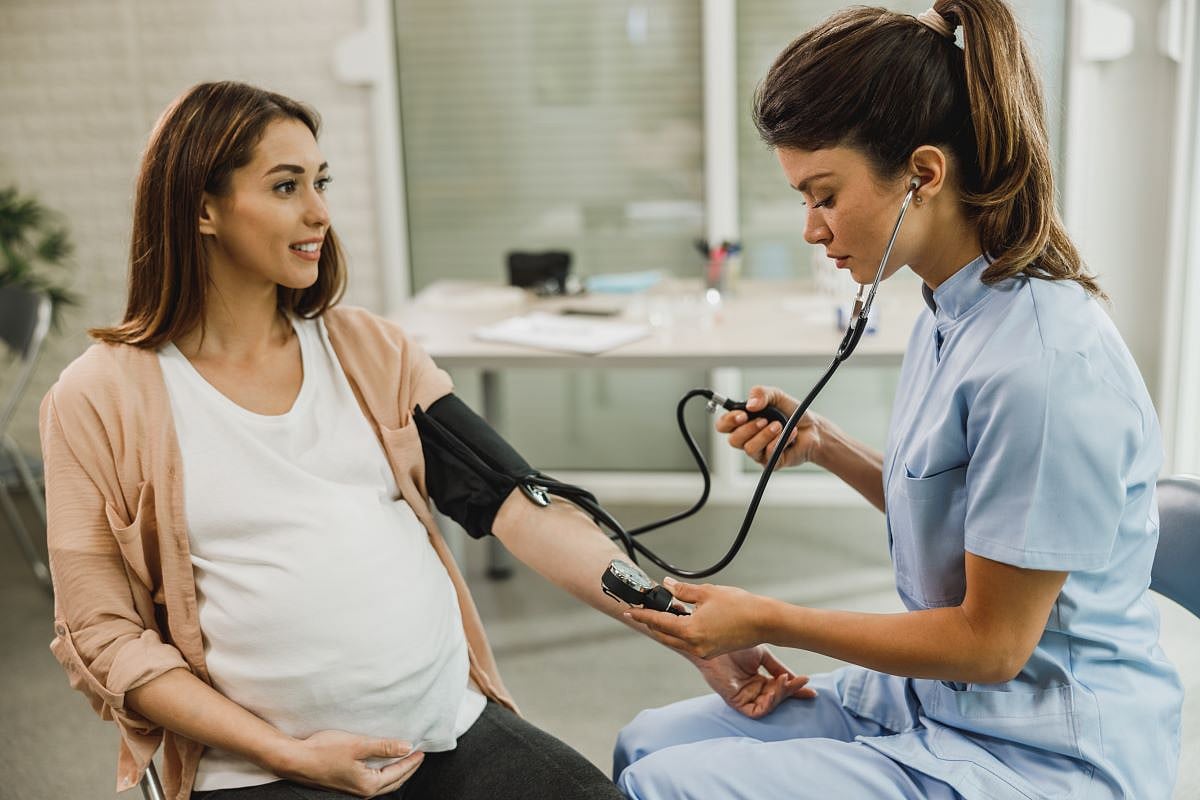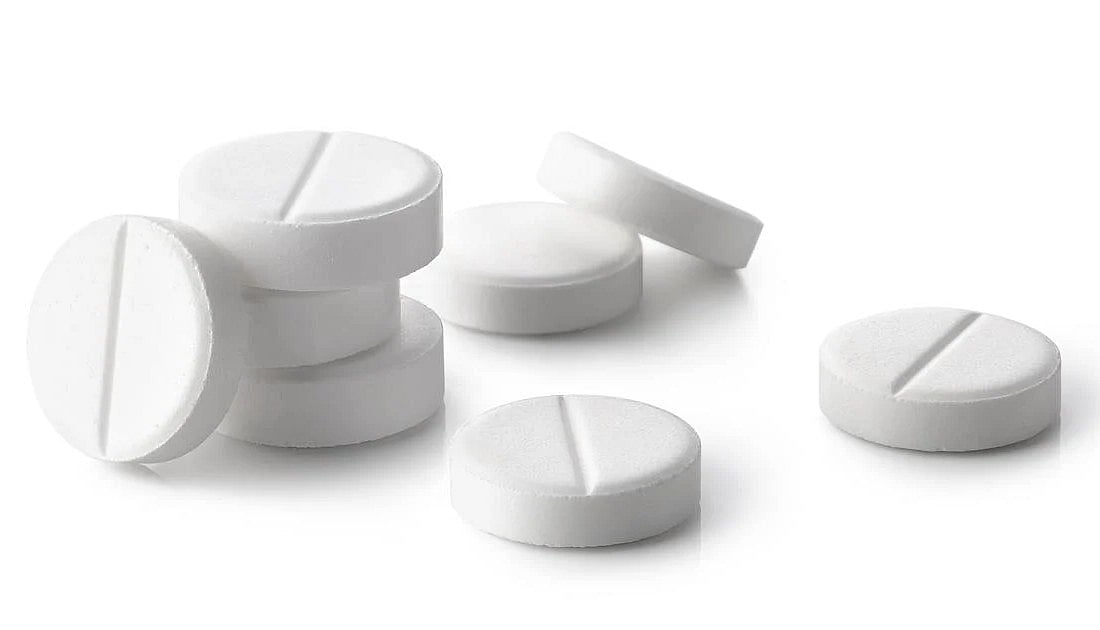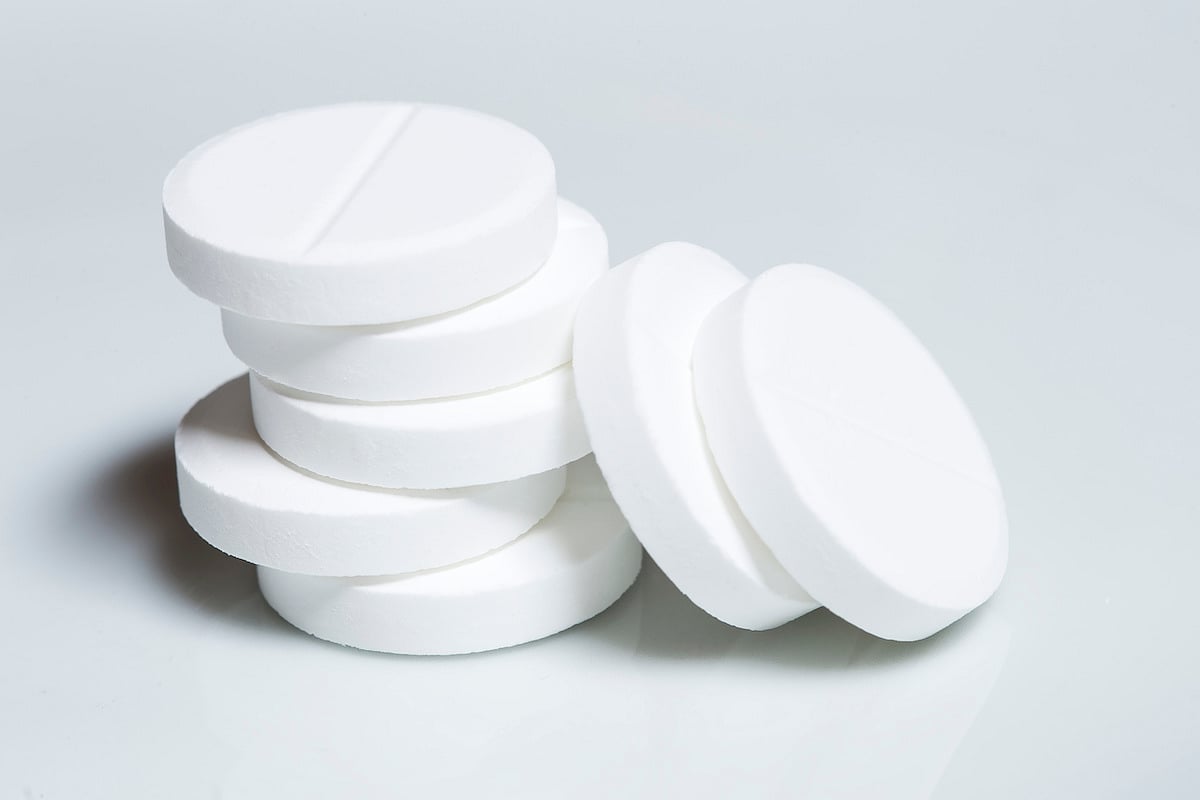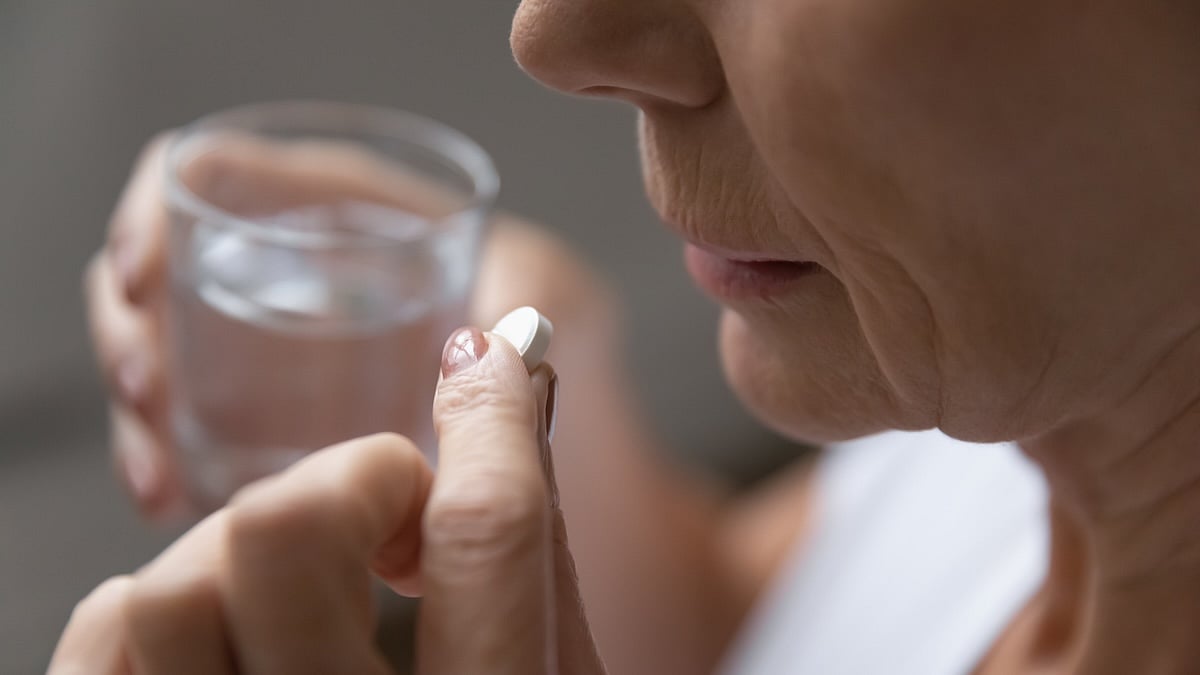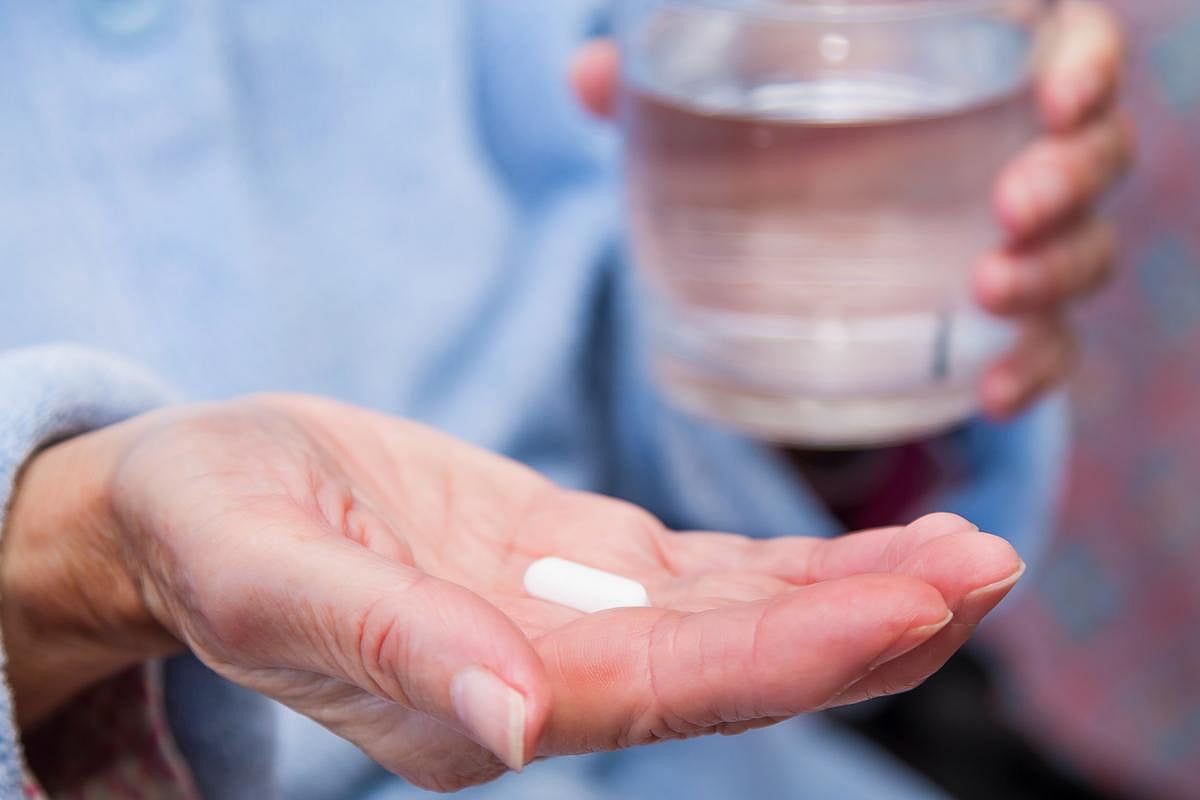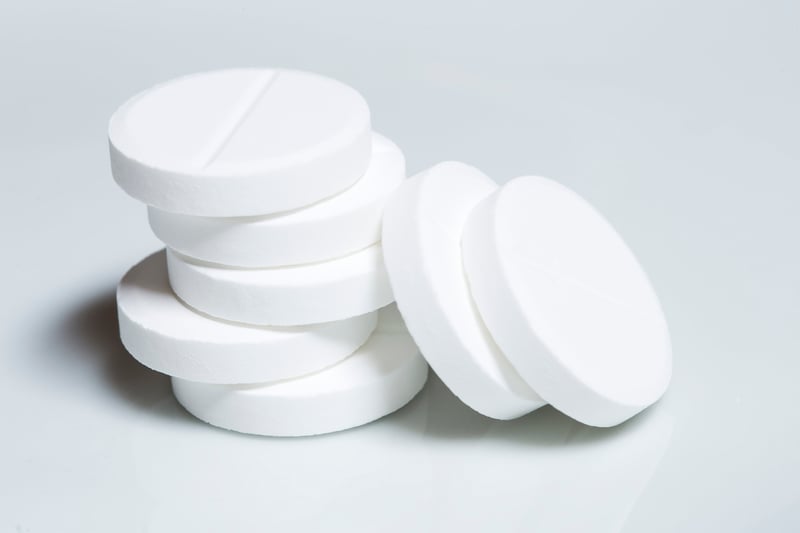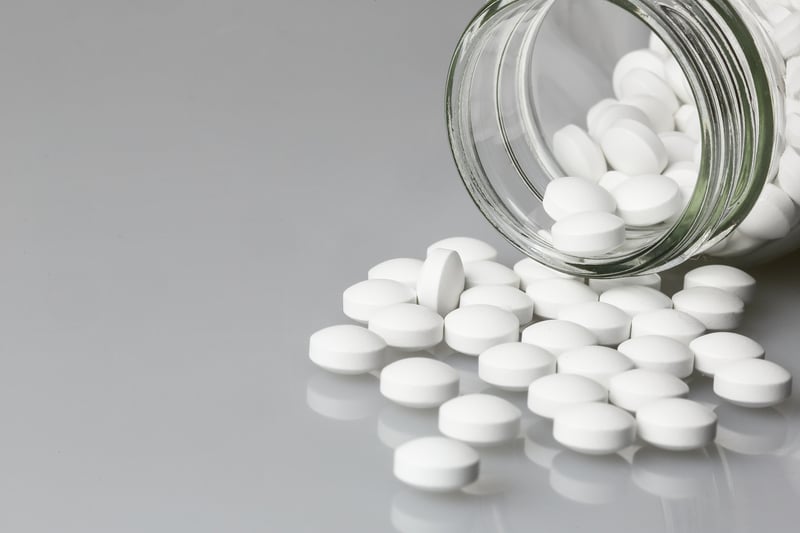Get Healthy!
Results for search "Aspirin".
06 Mar
Can NSAIDs like Aspirin and Ibuprofen Help Prevent Dementia?
In a new study, participants who used NSAIDS for 24 months of longer had a 12% lower risk of developing dementia.
Health News Results - 25
Doctors could reduce rates of a dangerous high blood pressure condition in pregnancy by taking one simple step, a new study says.
Prescribing daily aspirin to all pregnant women at their first prenatal visit was associated with an overall reduction in cases of severe preeclampsia, according to finding...
- Dennis Thompson HealthDay Reporter
- |
- February 13, 2026
- |
- Full Page
Low-dose aspirin is no longer universally recommended to prevent heart health emergencies, but it might help people with type 2 diabetes, a new study says.
People with type 2 diabetes who took low-dose aspirin were less likely to have a
Aspirin can cut by more than half the risk that colon cancer will come back following initial treatment, a new clinical trial has found.
Daily aspirin reduced by 55% the risk of cancer recurrence in patients whose colorectal cancer is driven by a genetic mutation, researchers re...
- Dennis Thompson HealthDay Reporter
- |
- September 18, 2025
- |
- Full Page
About 1 in 6 older adults takes daily aspirin to prevent heart disease, even though stricter guidelines say it’s not for everyone, a new study says.
Worse, nearly a quarter of those folks started taking aspirin without a doctor’s recommendation, and about 1 in 10 haven’t discussed their use with any health care provider, researchers found.
“For some patients ...
- HealthDay Reporter
- Dennis Thompson
- |
- July 7, 2025
- |
- Full Page
Many Americans don’t see anything wrong with taking daily low-dose aspirin, even though experts have concluded its risks outweigh its benefits, a new survey has found.
Nearly half (48%) of people incorrectly think that the benefits of taking low-dose aspirin daily to reduce the risk of heart attack or stroke outweigh the risks, accord...
- HealthDay Reporter
- Dennis Thompson
- |
- February 4, 2025
- |
- Full Page
Daily low-dose aspirin can help prevent cancers from returning in about a third of colon cancer patients, a new study says.
Taking 160 milligrams of aspirin a day cuts the risk of cancer recurrence in half among colon cancer patients with a mutation in their PI3K genes, research...
- HealthDay Reporter
- Dennis Thompson
- |
- January 29, 2025
- |
- Full Page
It's long been known that a daily dose of low-dose aspirin helps keep colon cancer at bay.
But new research suggests that those who benefit most are folks whose lifestyles up their odds for the disease in the first place.
“Our results show that aspirin can p...
- HealthDay Reporter
- Ernie Mundell
- |
- August 1, 2024
- |
- Full Page
For decades, millions of Americans popped a low-dose aspirin each day to lower their heart risks.
Then, accumulated data prompted the nation's two leading cardiology groups -- the American College of Cardiology and the American Heart Association -- to overturn advisories in 2019 and...
- HealthDay Reporter
- Ernie Mundell
- |
- June 25, 2024
- |
- Full Page
Long-term daily use of aspirin has been known to prevent colon cancer, but up to now it's been unclear why that is.
Now, researchers think they understand how aspirin acts against colon cancer, a new study says.
Aspirin appears to boost aspects of the body's immune respons...
- HealthDay Reporter
- Dennis Thompson
- |
- April 24, 2024
- |
- Full Page
People who've survived a heart attack and have been given a stent may be better off quitting low-dose aspirin a month after the procedure, a new study finds.
The strategy is "beneficial by reducing major and minor bleeding through one year by more than 50 percent," said study lead author Dr. Gregg Stone, a professor of medicine (cardiology) and population health science and policy at the ...
- HealthDay Reporter
- Ernie Mundell
- |
- April 9, 2024
- |
- Full Page
Lots of seniors are regularly taking low-dose aspirin in hopes of preventing heart attacks and strokes, even though updated guidelines often advise against it.
About one in four older adults take aspirin at least three times a week, according to results from the University of Michigan's
If you've had a heart attack, your doctor likely told you to take a low-dose aspirin daily to stave off a second heart attack or stroke, but most people don't follow through with this advice over the long-term.
Those folks who don't take daily low-dose aspirin consistently are more likely to have another heart attack, stroke or die compared with their counterparts who consistently take as...
- HealthDay Reporter
- Denise Mann
- |
- August 22, 2023
- |
- Full Page
For years, older adults took a baby aspirin a day to help ward off a first-time heart attack or stroke. Now yet another study is showing the risks are not worth it for most.
Specifically, researchers found the risk of brain bleeding while using low-dose aspirin outweighed any potential benefit against stroke for relatively healthy older adults -- that is, those with no history of heart di...
- HealthDay Reporter
- Amy Norton
- |
- July 27, 2023
- |
- Full Page
Taking daily low-dose aspirin increases the risk of anemia in the elderly, a new clinical trial suggests.
Not only does it raise anemia risk by more than 20% in people 70 or older, it is also associated with a decline in blood iron levels, researchers report.
"This finding about anemia and aspirin is noteworthy because, in many older people, anemia has other consequences such as fat...
- HealthDay Reporter
- Dennis Thompson
- |
- June 20, 2023
- |
- Full Page
When people undergo surgery for broken arms or legs, they are often injected with prescription blood thinners to reduce their risk of developing potentially life-threatening blood clots in their lungs and legs.
But a large,
For many years, doctors have advised taking low-dose aspirin to help prevent first-time heart attacks and stroke. But increasingly, they're doing an about-face.
The latest warnings come from University of Michigan researchers who reported that patients simultaneously taking another blood thinner,
After decades where millions of Americans who were at risk for cardiovascular trouble were told a daily low-dose aspirin would guard against strokes and heart attacks, new guidelines issued this spring recommend that the strategy is not worth the bleeding risks in those over 60.
That's been plenty confusing for patients who aren't sure what is the safest course forward.
Diane Manzel...
- HealthDay Reporter
- Cara Murez
- |
- June 22, 2022
- |
- Full Page
It seemed a simple prospect - take a low-dose baby aspirin tablet once a day and reduce your risk of ever suffering a heart attack or stroke.
But new science has shown it's not that simple.
Noting the drug's risk of dangerous bleeding, the nation's leading panel of preventive health experts has reversed course and
Something as simple as aspirin may help lower the risk of death in hospital patients who are fighting a tough case of COVID-19, a new study found.
George Washington University researchers analyzed data on more than 112,000 patients hospitalized with moderate COVID-19 at 64 health systems in the United States ...
- Consumer news
- |
- March 24, 2022
- |
- Full Page
Older blood thinners, especially when taken in combination with daily low-dose aspirin, are associated with a higher risk of brain bleeds and death after hospital discharge in patients treated for head injury, new research shows.
The risk fell when patients were taking one of the newer blood thinners, said the authors of a study presented Tuesday at the annual meeting of the Radiological ...
- HealthDay Reporter
- Ernie Mundell and Robert Preidt
- |
- November 30, 2021
- |
- Full Page
Folks who've had a clogged artery reopened probably can stop taking blood thinners sooner than previously thought, a new study argues.
Patients are regularly prescribed blood thinners for a year or more after angioplasty. This is to make sure that blood doesn't clot inside the metal stent that now holds their artery open. That could cause a heart attack or stroke.
But heart doctors ...
- HealthDay Reporter
- Dennis Thompson
- |
- November 23, 2021
- |
- Full Page
Low-dose aspirin neither reduces nor increases the risk of dementia in adults with type 2 diabetes, a new study finds.
"This is reassuring that an increase in the risk of dementia is unlikely for the millions of people worldwide who regularly take aspirin to protect against the risk of heart attack and stroke," according to study author Jane Armitage, of the University of Oxford in Englan...
- HealthDay Reporter
- Robert Preidt
- |
- November 19, 2021
- |
- Full Page
Most people shouldn't bother taking daily low-dose aspirin to reduce their risk of a first heart attack or stroke, the nation's leading panel of preventive medicine experts announced Tuesday.
The U.S. Preventive Services Task Force (USPSTF) issued a draft recommendation that essentially backs off its previous advice urging many folks to consider taking low-dose aspirin to prevent heart di...
- HealthDay Reporter
- Dennis Thompson
- |
- October 12, 2021
- |
- Full Page
Pregnant women at risk for a serious high blood pressure disorder called preeclampsia should take low-dose aspirin after their first trimester, according to the U.S. Preventive Services Task Force (USPSTF).
The recommendation, announced Sept. 28, updates and is consistent with the task force's 2014 sta...
- HealthDay Reporter
- Denise Mann
- |
- September 28, 2021
- |
- Full Page

